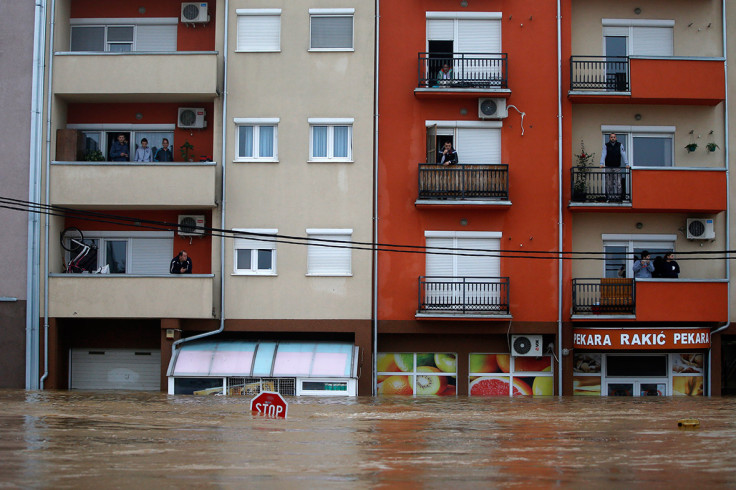IMF Aid For Serbia to Total €1bn As Economy Seen Contracting This Year

The International Monetary Fund has said that the floods earlier this year affected Serbia's prospects badly and the economy is expected to contract in 2014. The Fund said it has agreed for a 36-month economic aid program totalling €1bn for Serbia.
"The economic conditions (of Serbia) remain challenging. GDP is expected to contract in 2014, partly due to the floods in May 2014, weakening domestic demand, and troubled corporate balance sheets," the IMF statement on 20 November stated.
Inflation in Serbia has been below the Serbian central bank's tolerance band since end-2013 while the unemployment rate, at over 17% poses a major social concern, the IMF noted.
Serbia's general fiscal deficit is projected to increase to about 8% of GDP in 2014, and public debt to rise to 68% of GDP by the end of the year, according to IMF. "Without comprehensive policy changes, public debt would continue to rise to unsustainable levels, undermining macroeconomic stability and growth potential," the fund said.
Aid Program
The fund said Serbia has agreed for an economic program that could be supported by a 36-month precautionary Stand-By Arrangement (SBA) with the IMF. "Proposed access could total SDR 935.4mn (around €1bn, £799m), or 200% of quota."
The new economic program seeks sustainable growth and job creation over the medium term by implementing strong fiscal consolidation and structural reforms, IMF said.
"In particular, fiscal adjustment aims to halt the rise in public debt and put it on a downward trajectory by 2017. The accompanying structural reform measures should help create a virtuous cycle of boosting market confidence, private sector investment, and growth."
IMF said that Serbia, under the new economic program will focus on containing expenditures by scaling down the large public sector wage and pension bills, and reducing budget support to public enterprises.
At the same time, the existing social safety net will be maintained, to ensure proper protection of the vulnerable groups, the fund said.
Serbia also has to strengthen tax administration, improve public financial management, enhance the control of public expenditures, and contain fiscal risks, IMF added.
"Restructuring of large public enterprises — including electricity, gas, railways, and road companies — will help reduce the drain on the budget, while ensuring adequate provision of services."
Banking and Monetary Policies
Serbia's monetary and exchange rate policies will continue to be anchored by the inflation targeting framework. The banking sector appears stable with adequate capitalisation and liquidity but bad loans need to be reduced, the IMF said.
"Fiscal adjustment is expected to create room for gradual rebalancing of the policy mix towards monetary easing, provided that external financing conditions stabilise. This should help reduce real lending interest rates and support private sector-led growth," the IMF noted.
"The banking sector appears broadly stable with generally adequate capitalisation and ample liquidity. Nevertheless, the authorities are committed to implement a comprehensive strategy to reduce the level of NPLs, improve corporate debt workout mechanisms, and increase the credit worthiness of the private sector.
"Furthermore, authorities will continue strengthening bank supervision and resolution frameworks to ensure financial system stability."
© Copyright IBTimes 2025. All rights reserved.






















